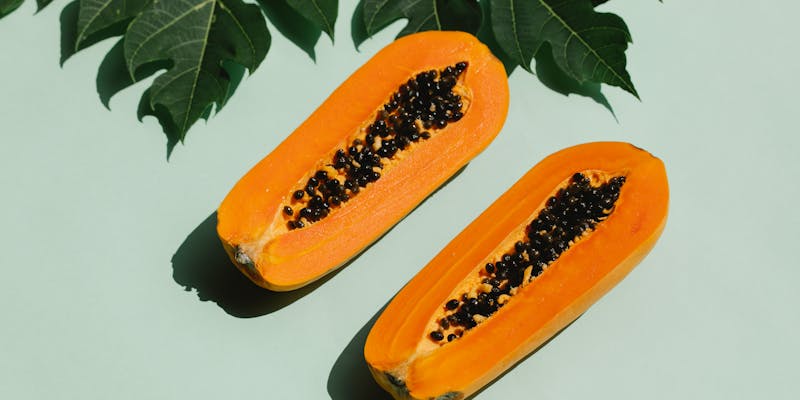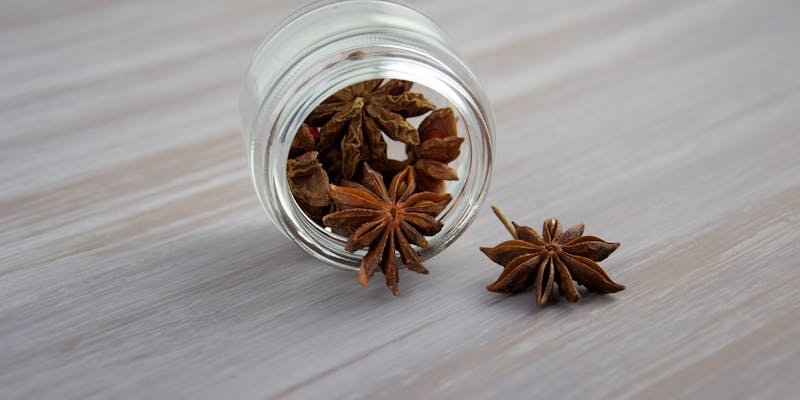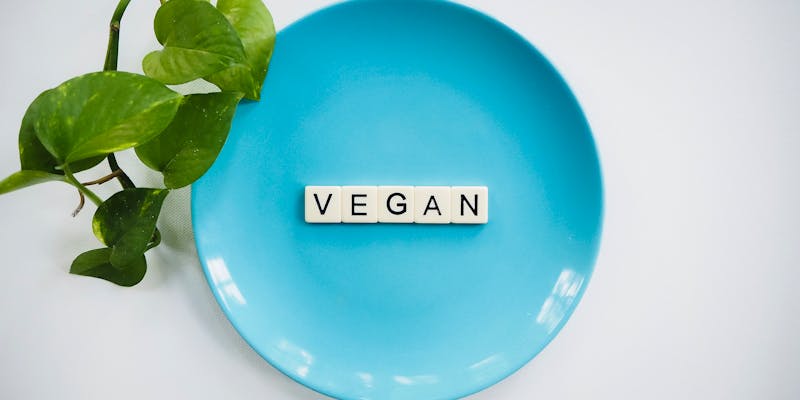Tea has long been celebrated for its numerous health benefits, but could it also be the key to luscious locks? This natural beverage, rich in antioxidants and various nutrients, has been touted as a potential remedy for promoting hair growth. With the growing interest in holistic and natural beauty treatments, many are turning to tea as a gentle, cost-effective solution for hair care. This introductory exploration will delve into the scientific evidence behind teas hair growth-promoting properties, the specific types of tea that may be most effective, and practical tips for incorporating tea into your hair care routine. Is tea the miracle brew for your hair dreams? Lets find out.
Understanding the Benefits
Studies suggest that tea can provide several benefits that may contribute to healthier, more vibrant hair.
1.Improved Scalp Health
Tea, particularly green tea, contains essential compounds like polyphenols and vitamins that have anti-inflammatory and antimicrobial properties. These elements can soothe an irritated scalp, reduce dandruff, and promote a healthier environment for hair follicles to thrive.
2.Enhanced Hair Strength and Shine
Black tea is known for its high caffeine content and rich tannins, which can strengthen hair strands and enhance shine. Caffeine stimulates hair follicles and can help reduce hair loss, while tannins contribute to smoother, glossier hair by tightening the cuticles.
3.Stimulation of Hair Growth
EGCG helps improve blood circulation in the scalp, thereby ensuring that hair follicles receive essential nutrients and oxygen for optimal growth.
4.Reduced Hair Shedding
Using tea rinses, particularly with black or green tea, can help reduce excessive hair shedding. The caffeine found in these teas blocks the hormone dihydrotestosterone (DHT), which is known to cause hair thinning and loss, thereby helping to maintain hair density and volume.
5.Natural Conditioning
Herbal teas, such as chamomile and rosemary, are excellent natural conditioners. Chamomile can brighten and soften hair, making it appear more vibrant, while rosemary tea is known to nourish the scalp and darken hair, helping to cover greys naturally.
Types of Tea for Hair Growth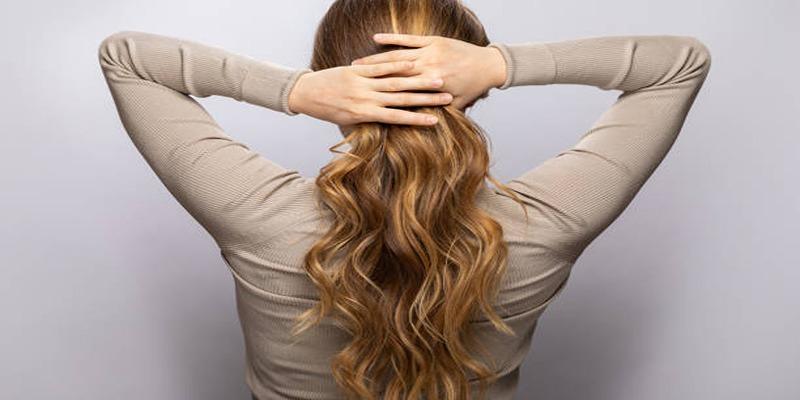
Incorporating different types of tea into your hair care routine can be highly beneficial. Here are the specific types of tea most effective for promoting hair growth:
- Green Tea: Green tea's remarkable benefits stem from its high content of antioxidants, particularly EGCG (Epigallocatechin gallate), which aids in stimulating hair follicles and supporting hair growth. The anti-inflammatory effects of green tea can soothe an irritated scalp, reducing dandruff and fostering a healthier environment for hair.
- Black Tea: Black tea's caffeine content helps block the hormone DHT, responsible for hair thinning, thereby reducing hair loss and promoting thickness.Tannins in black tea fortify hair strands, add shine, and smooth the hair cuticles, making hair look healthier.
- Chamomile Tea: Chamomile tea acts as a natural brightener and softener, enhancing the hair's vibrancy and silkiness by conditioning and moisturizing the strands.It also has anti-inflammatory and calming effects on the scalp, reducing irritation and promoting overall scalp health.
How to Prepare Tea Rinses
Using tea rinses as part of your regular hair care routine can be a simple yet effective way to leverage the benefits of various teas.
Preparation Method for Tea Rinses
Begin by brewing a strong cup of your chosen tea. For optimal results, steep 2-3 tea bags in 2 cups of boiling water for at least 15 minutes. Allow the tea to cool to room temperature before using it as a rinse.
Application Process
Once your brewed tea has cooled, pour it over freshly washed hair and scalp. Massage gently to ensure even distribution and allow the tea to saturate the hair shaft and follicles. Leave it on for 10-15 minutes before rinsing thoroughly with cool water.
Frequency and Considerations
Using tea rinses 1-2 times per week can provide noticeable benefits without overdoing it. However, individual needs may vary, so it's important to monitor how your scalp and hair respond and adjust frequency accordingly. Be mindful of potential sensitivities, particularly if you are prone to allergies or have a sensitive scalp.
Combining Teas
For a customized hair care experience, consider combining different types of teas. For example, mix green tea and rosemary tea to reap the benefits of both EGCGs antioxidant properties and rosemary's scalp-nourishing effects. Tailoring the blend to your specific hair needs can enhance overall results.
Application Methods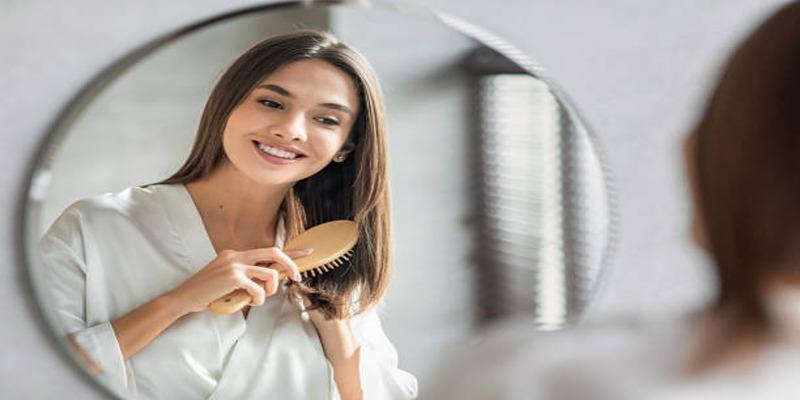
Different methods can be used to apply tea to your hair, each offering unique benefits. Here are some popular techniques:
1.Direct Application
- How to Use: After brewing and cooling your chosen tea, pour it directly over your hair and scalp. Gently massage for full coverage.
- Benefits: This method ensures immediate contact with scalp and hair, maximizing the absorption of nutrients and antioxidants.
2.Spray Bottle Application
- How to Use: Transfer the brewed tea into a spray bottle. Spritz your hair and scalp evenly until fully saturated. You can use this method daily for continuous benefits.
- Benefits: A spray bottle allows for easy, even application. It's convenient for frequent use and can act as a refreshing leave-in conditioner throughout the day.
3.Soaking
- How to Use: In a basin or sink, immerse your hair in brewed tea for several minutes. This method is ideal for ensuring that every strand is soaked with the beneficial properties of the tea.
- Benefits: Full immersion allows the hair to absorb a greater amount of the teas beneficial compounds, ideal for deep nourishment.
4.Tea-infused Hair Products:
- How to Use: Incorporate products that contain tea extracts into your hair care regimen. These can include shampoos, conditioners, and hair masks enriched with tea benefits.
- Benefits: Infused products provide a convenient, consistent way to benefit from teas properties as part of your regular hair care routine.
Potential Side Effects
While tea rinses generally provide numerous benefits for hair health, it's important to be aware of potential side effects. Some individuals may experience an allergic reaction to certain types of tea, manifesting as itchiness, redness, or hives on the scalp. To avoid this, it is advisable to perform a patch test before applying the tea rinse extensively. Additionally, overusing tea rinses, particularly those containing caffeine, like black tea, could potentially dry out the hair since caffeine has astringent properties. Individuals with very dry or brittle hair should be cautious and might consider reducing the frequency of use. Furthermore, teas with a strong pigment, such as black or rosemary tea, might cause colour changes in lighter hair shades. This can be an advantage if you're looking to darken your hair naturally but could be undesirable if you prefer to maintain your current hair colour. As with any new hair care treatment, observing how your hair reacts and making adjustments accordingly is key to reaping the benefits while minimizing any adverse effects.
Final Words!
Incorporating tea rinses into your hair care regimen can provide a natural and cost-effective way to improve hair health. The variety of teas available allows for customization to address specific hair concerns, from promoting growth to enhancing shine. By understanding the preparation, application, and potential side effects, you can confidently experiment with different teas to find the best match for your needs. Regular use, combined with mindful observation of your hair's response, can yield noticeable improvements in texture, strength, and overall vibrancy. Embrace the power of nature through tea rinses and enjoy healthier, revitalized hair.

